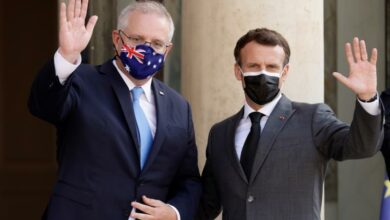Marcos Jr. starts as favorite in race to choose Duterte’s successor

By Federico Segarra
Manila, May 3 EFE).- The successor of controversial president Rodrigo Duterte will be elected Monday in the Philippine presidential elections, with “Bongbong” Marcos, son of dictator Ferdinand Marcos, as a clear favorite according to polls, which predict a landslide victory.
With six days to go before the elections, 64-year-old Ferdinand Marcos Jr., known as “Bongbong,” would obtain 56 percent of the vote according to a poll published Monday by Pulse Asia. His closest opponent Leni Robredo would remain at 23 percent despite having united the opposition to the Marcos dynasty.
The son of the late dictator forms a political tandem with Sara Duterte, daughter of the current president of the Philippines, running for the vice presidency of the country in an independent vote in which she also leads the polls by a wide margin.
The long electoral campaign that began in February will intensify this week and the favorite candidates, Marcos and Duterte, are holding a rally Tuesday in the city of Iloilo, in which they hope to gather up to 100,000 people to give a show of force in the final stretch of the elections.
Marcos Jr, who cannot enter the United States due to a conviction associated with his father’s financial crimes, has defended Duterte’s economic and social policies, but is more moderate in the most controversial aspects of the current president. This includes the violent “war on drugs,” in which some 30,000 people have been killed in police raids according to Human Rights Watch.
Duterte has not yet given his official support to any candidate, but this could arrive in the coming days and would mobilize numerous voters due to the great popularity with which his term is ending, according to experts.
The elections, in which the head of state is elected for a single six-year term, are dominated by personalities who lack ideological identity. The electoral campaign has been marked by the polarization the Marcoses generate in public opinion, but the general feeling of a consistent majority in the street is favorable to the return of the Marcos dynasty to power.
Meanwhile, the campaign of the current vice president Leni Robredo, the only woman among the candidates, has focused on uniting the progressive vote. Thousands of young volunteers have joined the candidacy and very colorful rallies in which she has defeded the “cleanliness” of her record as a leader and her fight against corruption that abounds among the political class.
The electoral process has been marred by an intense disinformation campaign, with constant accusations among presidential candidates of manipulating the political and historical narrative through social media. The Philippines has a very young population vulnerable to manipulation and hoaxes – and the country leads the world ranking of daily social media use.
The propaganda team of Bongbong Marcos, who was defeated in the race for the vice presidency in the previous elections against Leni Robredo, seems to have convinced a majority of the bonanzas of the conjugal dictatorship of Ferdinand and Imelda. They fled from Philippines in 1986 overthrown in a peaceful revolution, leaving the country plunged into a deep economic crisis, having looted between $ 5 billion and $ 10 billion from public coffers. EFE
fs/lds





